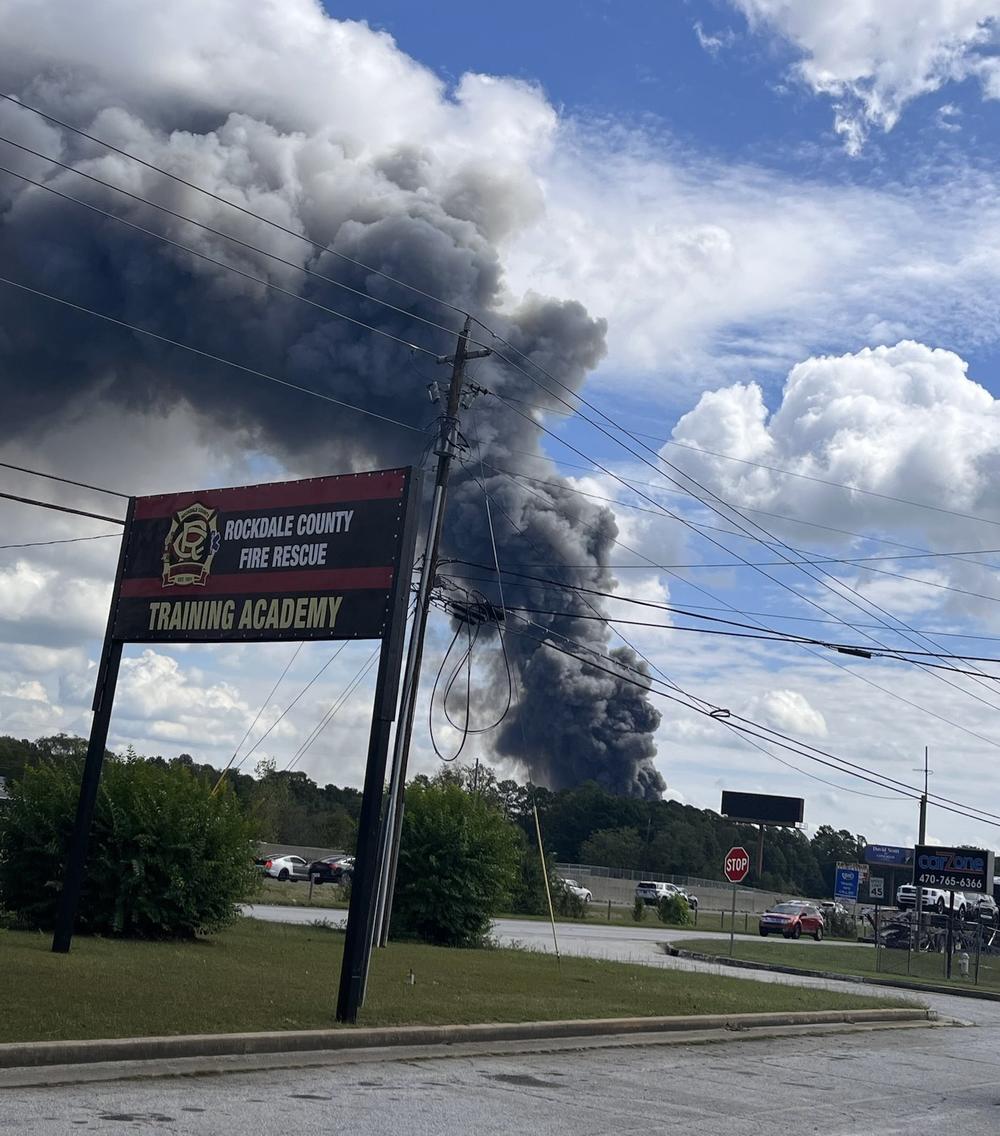
Caption
Some residents east of Atlanta were evacuated and others told to shelter in place after a fire at a chemical plant Sept. 29, 2024.
Credit: Rockdale County via X

Some residents east of Atlanta were evacuated and others told to shelter in place after a fire at a chemical plant Sept. 29, 2024.
The Office of Emergency Management sent out an alert to warn residents of a chlorine smell and hazy conditions expected to move toward Atlanta on Thursday as a result of the recent BioLab plant fire in Conyers, Ga.
The office warns that the conditions could last throughout the rest of the week before it resolves.
"DeKalb County residents may smell chlorine and wake up to hazy conditions Thursday morning as the winds are expected to move west from the Conyers chemical plant," per a press release statement. "After shifting Wednesday night, the smoke is predicted to settle near the ground as it moves toward Atlanta."
Atlanta Mayor Andre Dickens shared in a video statement on X that the Georgia Environmental Protection Agency (EPA), the U.S. Environmental Protection Agency and local officials are monitoring metro Atlanta area’s air quality.
“State health officials have stated that while chlorine can be smelled, even when levels are far below what’s considered harmful, it may still cause irritation to the eyes, throat, and airways, especially for those with heart of lung conditions,” he said.
Health professional recommended limiting outdoor activities, staying indoors and keeping windows closed Thursday morning before noon.
GPB’s Ellen Eldridge spoke with Georgia Tech air quality expert Ted Russell, who said people with asthma and respiratory illnesses are more prone to health impacts following the Sunday fire at a chemical plant in Rockdale County.
Russell said the cloud plume created by the reaction between chlorine and water is different now that the fire is out.
“It's not only breaking up, it's dispersing. And maybe that's the same sort of thing is that concentrations will just get lower and lower. And again, the sunlight is bringing this down,” he said.
For those of the public who experience symptoms, Dickens advised contacting their health providers or the Georgia Poison Center’s hotline at (404) 856-6252.
Georgia Health Initiative is a non-partisan, private foundation advancing innovative ideas to help improve the health of Georgians. Learn more at georgiahealthinitiative.org